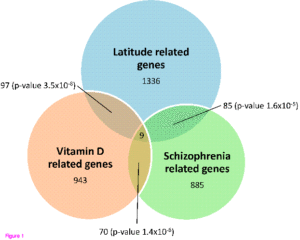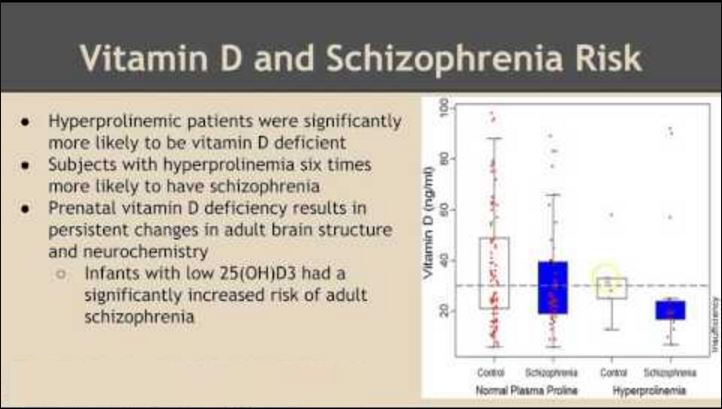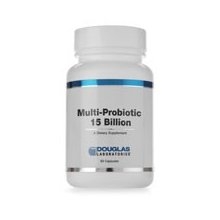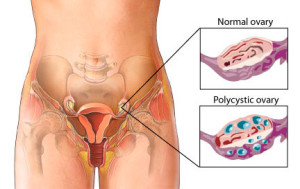Vitamin D Deficiency Doubles Risk of Developing Schizophrenia
A new meta-analysis of observational studies focused on the possible relationship between vitamin D serum levels and the odds of developing schizophrenia has concluded that a strong association exists between vitamin D deficiency and schizophrenia.
The research was conducted and authored by Doctors Ghazaleh Valipour, Parvane Saneei, and Ahmad Esmaillzadeh of the Food Security Research Center and Department of Community Nutrition, School of Nutrition and Food
Science, Isfahan University of Medical Sciences in Isfahan, Iran, respectively. The analysis involved a comprehensive review of 19 previous studies involving in excess of 2,800 total participants. The original article outlining the research debuted recently in the Journal of Clinical Endocrinology and Metabolism.

The researchers defined schizophrenia as a group set of neuropsychiatric disorders characterized by symptoms like hallucinations, delusions, confused thinking and disorganized speech.

Upon careful review of 19 previously conducted studies from around the world, the researchers concluded that individuals who suffer from vitamin D deficiency (vitamin D serum levels deemed lower than is considered healthy by accepted medical science) are more than twice as likely to develop schizophrenia than their vitamin D sufficient (healthy levels of vitamin D serum) counterparts. Specifically, the scientists found that inadequate levels of vitamin D increased the risk of developing schizophrenia by 2.16 times that associated with an individual whose vitamin D levels are within a healthy range.
Of those who had already been diagnosed with the mentally debilitating psychiatric condition, 65% were found to have insufficient levels of vitamin D.
The researchers stopped short of declaring that vitamin D supplementation may help to reduce the risk of developing the condition. Rather, they cautioned that more research would be necessary to observe the effects of supplementation on schizophrenia and its manifestation in previously healthy individuals. They also stopped short of declaring supplementation a means of treating existing schizophrenia, again alluding to the need for further study.
The abstract of the study can be viewed here: http://press.endocrine.org/doi/pdf/10.1210/jc.2014-1887.

 and eating foods that contain the “good bacteria” may help combat a number of health problems, a growing number of scientists say. New research indicates that specialized strains of these good bacteria could also help alleviate some mood and anxiety disorders.
and eating foods that contain the “good bacteria” may help combat a number of health problems, a growing number of scientists say. New research indicates that specialized strains of these good bacteria could also help alleviate some mood and anxiety disorders. Our stressed-out lifestyle may be our stomach’s biggest enemy. According to María Gloria Domínguez Bello, PhD, a professor of microbiology at the University of Puerto Rico, society’s hectic pace, which leads to our reliance on junk food and overuse of antibiotics, is throwing our internal ecosystem out of whack; she believes that there’s a link between our gut bacteria and the rise of food allergies and autoimmune diseases — Crohn’s Disease and Rheumatoid Arthritis among many others — in the industrialized world. “When there is a loss of balance in the different types of intestinal bacteria, they send signals to our immune system to overreact and become inflamed, leading to disease,” Domínguez Bello says.
Our stressed-out lifestyle may be our stomach’s biggest enemy. According to María Gloria Domínguez Bello, PhD, a professor of microbiology at the University of Puerto Rico, society’s hectic pace, which leads to our reliance on junk food and overuse of antibiotics, is throwing our internal ecosystem out of whack; she believes that there’s a link between our gut bacteria and the rise of food allergies and autoimmune diseases — Crohn’s Disease and Rheumatoid Arthritis among many others — in the industrialized world. “When there is a loss of balance in the different types of intestinal bacteria, they send signals to our immune system to overreact and become inflamed, leading to disease,” Domínguez Bello says. If it seems as if your stomach sometimes has a mind of its own, that’s because it does. The gut’s lining houses an independent network of hundreds of millions of neurons — more than the spinal cord has — called the enteric nervous system. It’s so complex and influential that scientists refer to it as “the second brain.” In addition to being in charge of the digestive process, your gut lining is the core of your body’s immune system and defends you against such foreign invaders as viruses and bacteria.
If it seems as if your stomach sometimes has a mind of its own, that’s because it does. The gut’s lining houses an independent network of hundreds of millions of neurons — more than the spinal cord has — called the enteric nervous system. It’s so complex and influential that scientists refer to it as “the second brain.” In addition to being in charge of the digestive process, your gut lining is the core of your body’s immune system and defends you against such foreign invaders as viruses and bacteria. Every time you microwave a lean cusisine or TV dinner, the heat from the microwave radiates the plastic, releasing BPA (Bisphenol A, an ingredient found in Polycarbonate plastics as well as epoxy resins) and dioxins, both of which disrupt hormone function.
Every time you microwave a lean cusisine or TV dinner, the heat from the microwave radiates the plastic, releasing BPA (Bisphenol A, an ingredient found in Polycarbonate plastics as well as epoxy resins) and dioxins, both of which disrupt hormone function.
 tamin D3
tamin D3